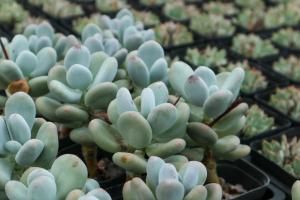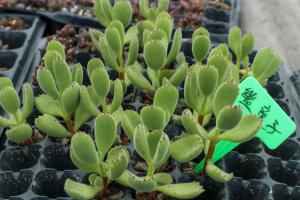Can I Clone Tomato Plants?
Tomatoes are one of the most popular plants grown in gardens around the world. They are tasty, nutrient-rich, and an excellent source of vitamins and minerals. Many gardeners wonder if they can clone tomato plants. In this article, we’ll explore the process of cloning tomato plants and discuss the benefits and drawbacks of this method of propagation.
Cloning Tomato Plants
Cloning tomato plants is an efficient way to propagate your favorite variety of tomato. The process involves taking a cutting from a mature tomato plant and growing a new plant from that cutting. To clone a tomato plant, you will need to select a healthy, mature tomato plant and take a cutting from the stem. The cutting should be at least four inches long and include a few leaves. Remove any lower leaves from the cutting and dip the cut end into rooting hormone. Plant the cutting in a pot filled with moist soil and keep it in a warm, sunny location. With proper care, the cutting will develop roots and grow into a new tomato plant.
Benefits of Cloning Tomato Plants
Cloning tomato plants offers several benefits to gardeners. One advantage of cloning is that it ensures the new plant will have the same characteristics as the parent plant. This means that if you have a favorite tomato variety, you can ensure that the plants you grow in the future will have the same qualities. Cloning also allows gardeners to propagate plants quickly, which can be useful if you need to grow a large number of plants. Additionally, cloning can be a fun and rewarding way to experiment with different tomato varieties and create new hybrids.
Drawbacks of Cloning Tomato Plants
While cloning can be an effective way to propagate tomato plants, it does have its drawbacks. One disadvantage is that cloned plants are more susceptible to disease and pests. This is because they are genetically identical, so if one plant is susceptible to a particular pest or disease, all of the cloned plants will be as well. Additionally, cloning can lead to a loss of genetic diversity, which can be harmful in the long term. It’s important to remember that cloning should be used in conjunction with traditional plant propagation methods, such as seed saving and cross-breeding, to maintain genetic diversity in your garden.
Conclusion
Cloning tomato plants can be a useful tool for gardeners who want to propagate their favorite variety of tomato quickly and efficiently. However, it’s important to remember that cloning should be used in conjunction with traditional plant propagation methods to maintain genetic diversity and avoid susceptibility to disease and pests. By understanding the benefits and drawbacks of cloning tomato plants, gardeners can make informed decisions about which propagation methods to use in their gardens.

 how many times do yo...
how many times do yo... how many planted tre...
how many planted tre... how many pine trees ...
how many pine trees ... how many pecan trees...
how many pecan trees... how many plants comp...
how many plants comp... how many plants can ...
how many plants can ... how many plants and ...
how many plants and ... how many pepper plan...
how many pepper plan...































